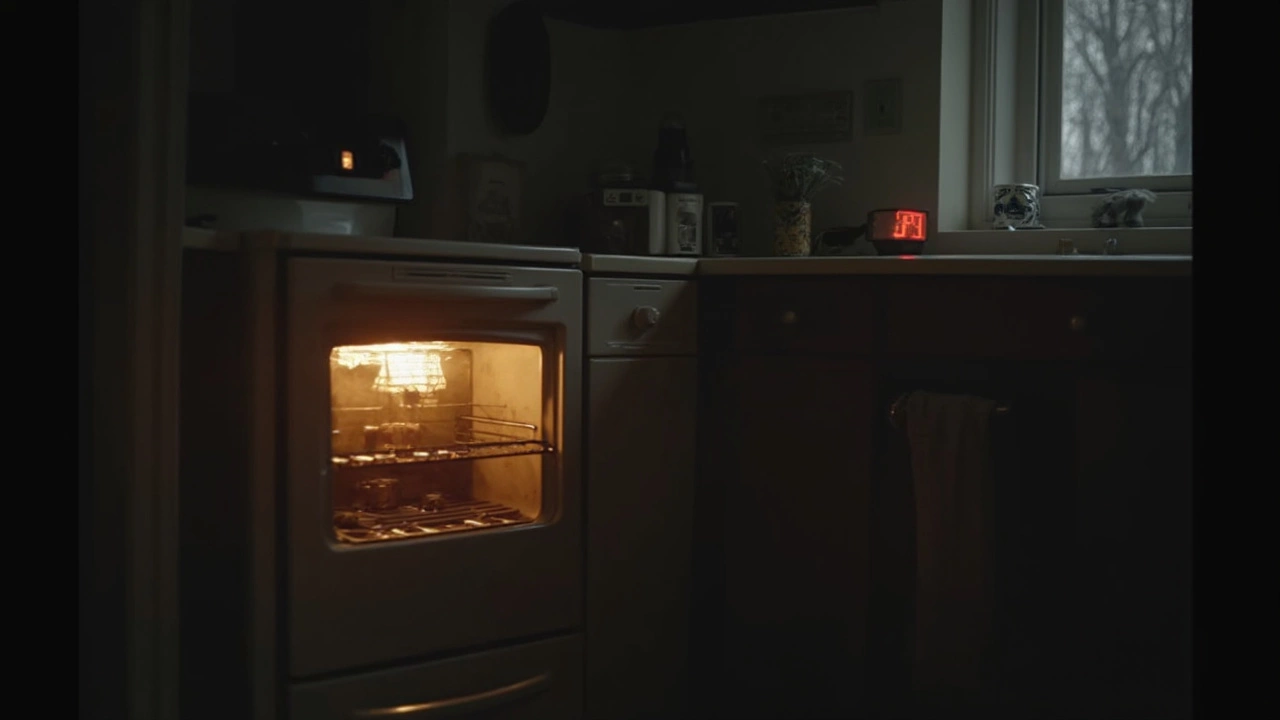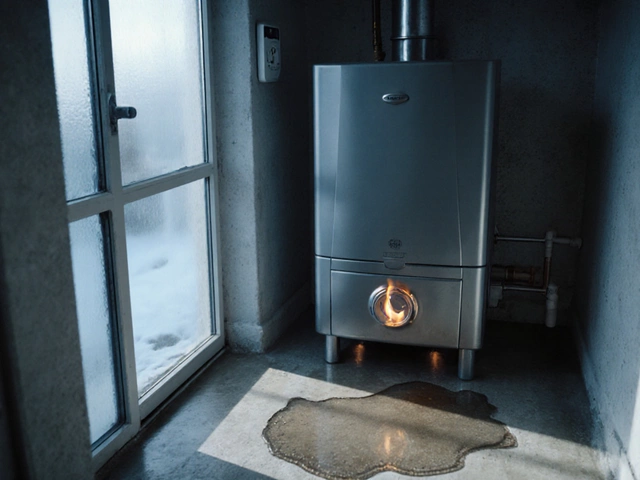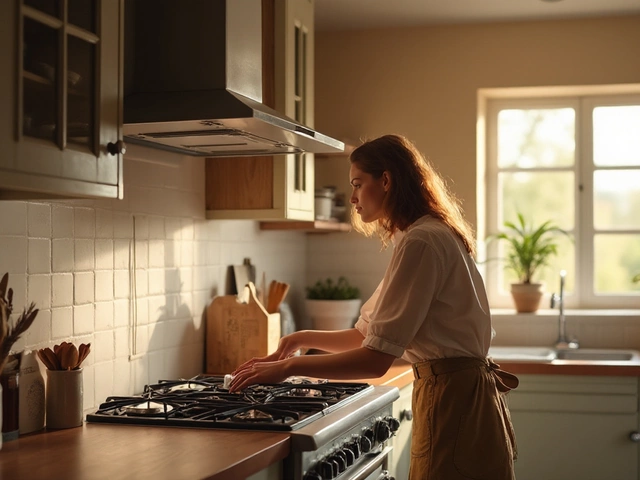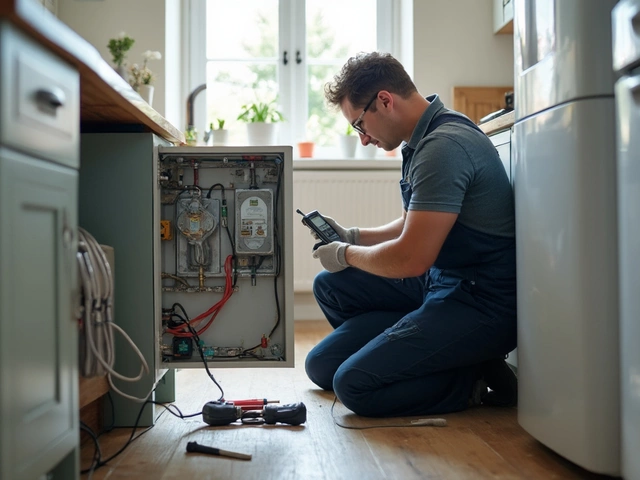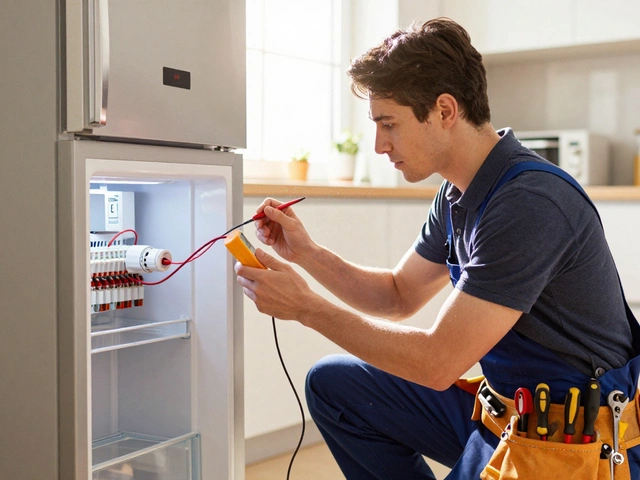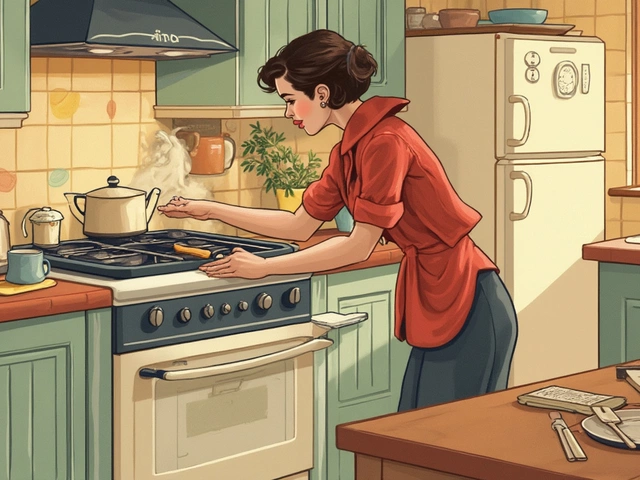So, you forgot to turn off the electric oven before crashing into bed? You're not alone, but this isn't just about a spike in your electric bill. Leaving an electric oven on all night can be downright dangerous, presenting risks that go beyond mere energy waste.
Let's get into the heart of the issue: safety. An unattended oven can lead to kitchen fires. No one wants to deal with that, right? Plus, an overlooked fact is that some ovens might release harmful gases even when turned on low. Yikes!
What about the wear and tear? Your oven isn't meant for long, unattended running hours. This could lead to unforeseen breakdowns, leaving you with an emergency repair on your hands.
- Understanding the Risks
- Safety Tips for Oven Usage
- Energy Consumption Concerns
- Common Oven Malfunctions and Fixes
Understanding the Risks
When it comes to leaving an electric oven on all night, safety concerns should be your top priority. It's not just about wasted electricity; we're talking about real dangers here.
Fire Hazards
Ever heard those stories about kitchen fires? They're more common than you'd think. An unattended oven can overheat, especially if something is left inside unintentionally. Materials close by could catch fire, too. It's always better to prevent than to deal with a charred kitchen.
Gas Leaks
Even if you have an electric oven, some models emit carbon monoxide, which is a silent killer. Without proper ventilation, this could accumulate in the house. It's particularly risky if you've got kids or pets around.
Overuse Damages
Your oven isn't made for marathon sessions. Overuse leads to wear and tear. Internal components might start to fail, and that means calling for an oven repair. Not fun, or cheap, to have your oven conk out when you need it most.
Wasted Energy
Leaving the oven on means your energy bill's going up—and fast. Let's not put a dent in your wallet unnecessarily. Cutting down unnecessary usage is key to saving some bucks.
| Year | Oven-Related Fires |
|---|---|
| 2020 | 7,500 |
| 2021 | 8,200 |
A quick look at the numbers above shows how often these accidents occur. This isn't to scare anyone, but to highlight the importance of turning off that oven when you're done.
Safety Tips for Oven Usage
When it comes to using your electric oven, safety should always be at the forefront of your mind. Here are some practical tips to help you avoid potential hazards.
Tip #1: Don't Leave It Unattended
The best rule? Never leave your oven running when you're not around. If you need to step out, hit the off button first. It's a simple habit that can save a lot of grief later.
Tip #2: Regular Maintenance Is Key
Think of maintenance like a regular dentist check-up but for your oven. Regularly inspecting and cleaning it can prevent small issues from becoming dangerous problems. Make sure the ventilation is clear, and that there are no cracked or frayed wires.
Tip #3: Install a Carbon Monoxide Detector
Though electric ovens aren't known for high risks of gas leaks, it's always better to be safe than sorry. A carbon monoxide detector can alert you to any unusual fumes.
Tip #4: Monitor Your Oven's Temperature
Ever heard of temperature creep? Your oven might get hotter than what it says on the dial. Use an oven thermometer to ensure it's cooking at the right heat.
Tip #5: Child Safety Matters
If there are kids in the house, make sure they can't reach the controls or open the oven door. Some ovens come with a lock feature especially for this reason.
Tip #6: Use the Appropriate Cookware
Believe it or not, not all dishes are safe to use in ovens. Avoid using anything that can crack or shatter under high heat, like certain types of glassware.
Lastly, remember: a safe oven usage not only prevents fires but ensures you won't need unexpected oven repair services anytime soon. It's all about peace of mind and keeping things running smoothly.

Energy Consumption Concerns
Leaving your electric oven running all night impacts your energy bill big time. Most ovens use up a lot of power when left on for long periods. In fact, a standard electric oven typically uses about 2-5 kilowatt-hours (kWh) per hour. Multiply that by an entire night, and you can see the bucks flying away.
Understanding Energy Costs
Curious about what this means in dollars? Well, if your energy rate is 12 cents per kWh (a common U.S. average), and your oven pulls in 3 kWh on average, you're looking at around 36 cents per hour. Leave it on for eight hours? That's nearly $3 just from one accidental overnight use! Imagine doing this a few times a month—those costs add up.
Why This Matters
It's not just about the hit to your wallet. Wasted energy also affects the planet. Every unnecessary kilowatt-hour translates to higher carbon emissions. So, turning off your oven when it isn't needed makes a difference, not just to your budget, but the environment leaps a bit forward too.
- Check your oven's manual to find its specific energy consumption rates. It can vary based on brand and model.
- Consider investing in an energy monitor if you're worried about overall household usage. These gadgets give insights on where to cut down.
- For a more eco-friendly approach, upgrade to energy-efficient oven models when you're shopping for a replacement. They generally use less electricity.
Evenings aren't the right time for defrosting food at a low heat for hours. Instead, try planning meals during the day when you can supervise—and save both cash and kilowatts.
Common Oven Malfunctions and Fixes
Electric ovens are a staple in many homes, but like any other appliance, they're not immune to issues. Let's talk about some common electric oven malfunctions that might pop up and how you can tackle them without breaking a sweat—or your wallet.
1. Oven Not Heating Properly
If your electric oven isn't getting hot enough, it could be due to a faulty heating element. A quick way to check is to see if the elements glow red-hot when the oven is on. If not, replacement might be in order.
- DIY Fix: Turn off the power, unscrew the debilitated element, and replace it with a new one. Make sure you get a compatible piece to avoid complications.
2. Unresponsive Oven Controls
Ever had your oven buttons ignore you? This usually points to an electrical issue or a control panel failure. First, check the fuse box to ensure nothing's tripped.
- DIY Fix: Resetting the oven by switching it off for a few minutes often does the trick. For a persistent problem, a technician might need to take a look.
3. Door Not Closing Properly
A door that won't shut can affect cooking times and energy efficiency, so it's best to sort this out promptly.
- DIY Fix: Look for any obstructions or dirt blocking the door seal. If the seal's damaged, replace it to ensure a snug fit.
4. Strange Smells or Smoke
Strange odors or smoke can be alarming. Often, it's food residue or burnt grease causing the fuss.
- DIY Fix: Clean the oven thoroughly. If the problem persists, inspect the wiring and elements for damage, and don't hesitate to call in the pros if needed.
Regular maintenance can nip these issues in the bud. Check the manual for specific troubleshooting steps tailored to your model. A bit of proactive care can extend your oven's lifespan significantly, keeping your kitchen running smoothly.
